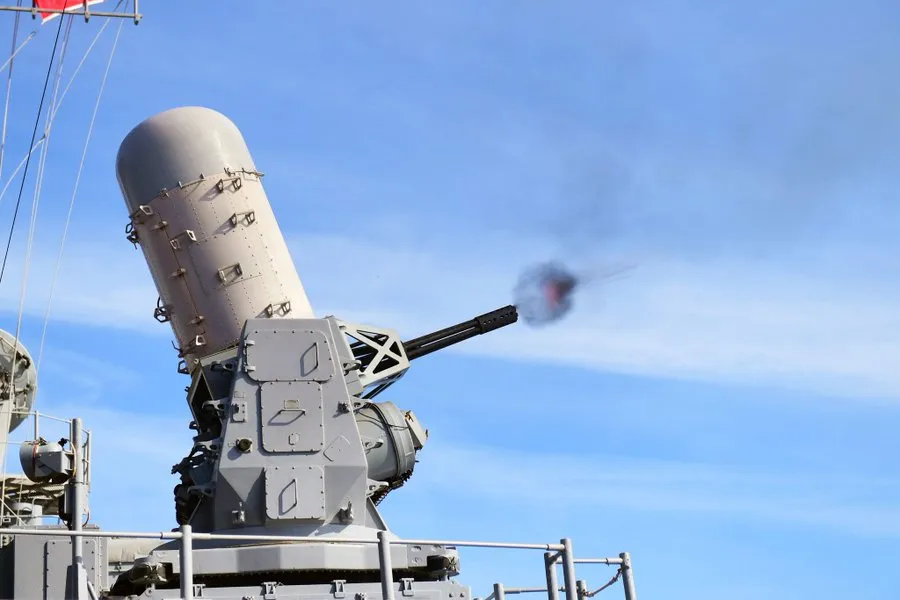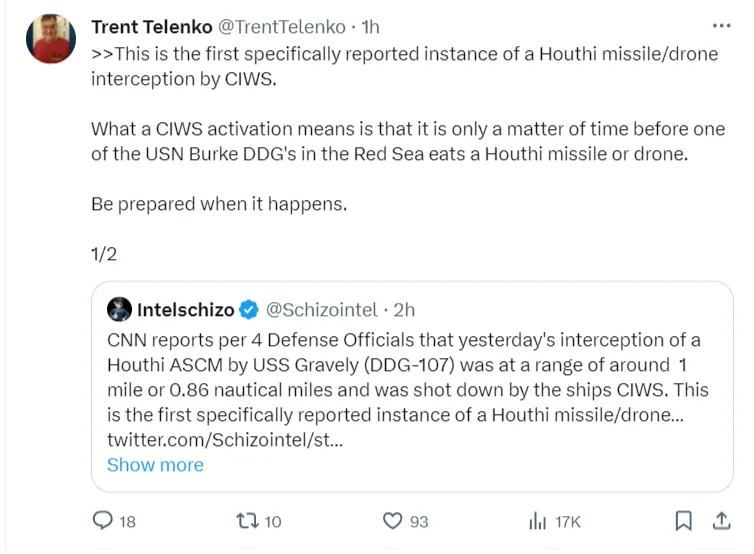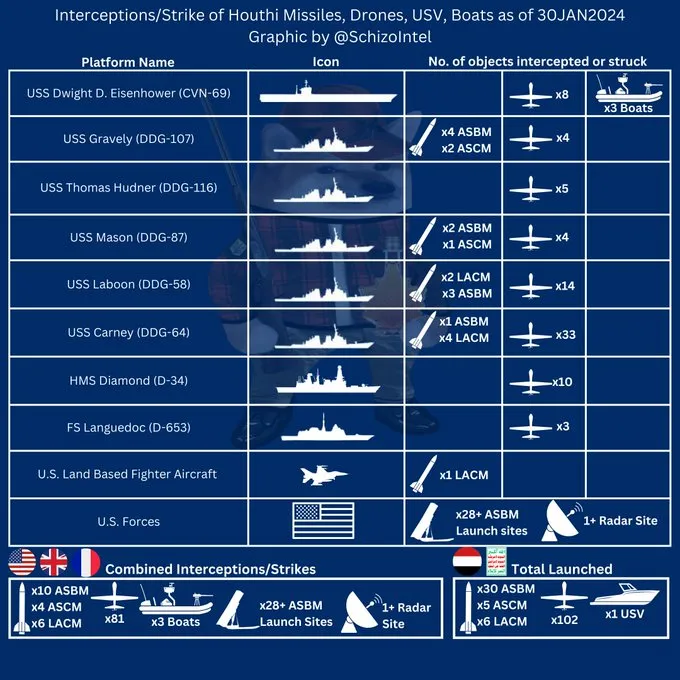JANUARY 12, 2024
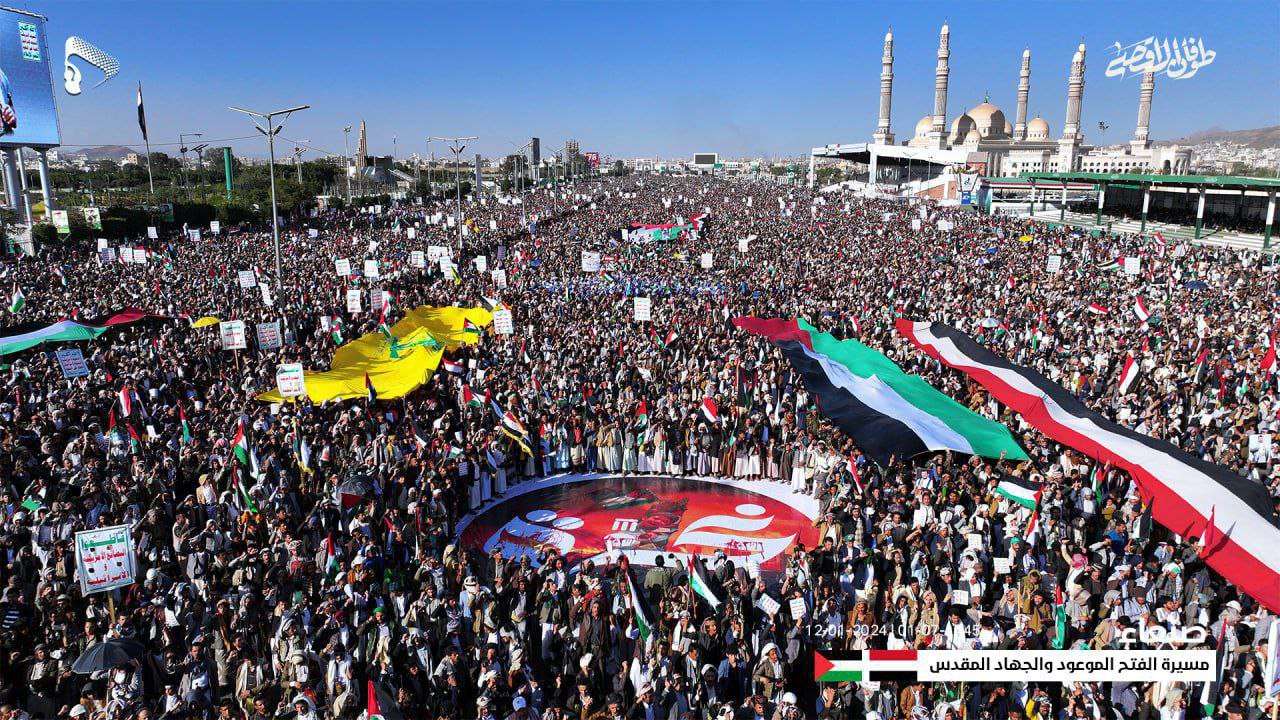
Millions of people rally in Sana'a Yemen on January 12th, 2024 against the US/UK aggression and in solidarity with Palestine. Very large flags of Yemen, Palestine, and Hezbollah can be seen. Photo: Ansarallah Military Media Telegram.
Caracas (OrinocoTribune.com)—On the morning of January 12th, 2024, the US and UK carried out a large bombing campaign against Yemen with aircraft, warships, and submarines. In a statement, the Ansarallah Movement’s military spokesman, Yahya Saree, announced that “the US-British enemy, in the context of its support for the continuation of the Israeli crimes in Gaza, launched a brutal aggression against Yemen with 73 strikes.” These attacks led to the death of five Ansarallah fighters and the injury of six others, the spokesman added. Additionally, the airstrikes of the US-British aggression bombed at least three civilian airports in Hajjah, Taiz, and Hodeidah.
Ansarallah officials confirmed to Al-Mayadeen that most of the military locations that were struck were “empty sites without any military equipment” which is why there were limited casualties. The greatest damage done was to the infrastructure of civilian airports. In the interview, Brigadier General Al-Thawr stressed that “targeting these sites does not fall within the framework of protecting trade routes in the Red Sea, as Washington claims,” explaining that these areas and sites are not used for military purposes and that the allegations of drones launched from these sites are “pure fantasy because [our] drones do not need large airports and runways to take off.”
US-dominated United Nations Security Council legitimizes the aggression
This illegal aggression came less than 48 hours after the passage of United Nations Security Council (UNSC) resolution 2722, spearheaded by the US, in an attempt to grant legitimacy to its waffling Operation Prosperity Guardian coalition. Four nations abstained from the resolution, China, Russia, Algeria, and Mozambique.
The resolution officially condemned Ansarallah’s position of targetting shipping vessels owned by “Israeli” companies or traveling to “Israeli” ports. As per the Yemeni decision, only those vessels that fit the criteria will be targeted or captured, and attacks will only halt when the war on Gaza ceases and its people receive sufficient medicine and food.
Vassily Nebenzia, the Russian Federation’s permanent representative to the UNSC denounced the resolution. “We should not have any illusions about the true goals of the authors of the resolution. This is not about ensuring the safety of navigation in the Red Sea at all, but an attempt to legitimize (post factum) the actions of the aforementioned ‘coalition’ and have [the] Security Council’s endorsement for an unlimited time,” he said pointing out the absurd position of Washington that “the United States equates defense of commercial vessels to self-defense.”
Following the UNSC vote, a spokesman for Yemen’s Ansarallah Movement, Mohamed Abdel Salam, stated “After about 100 days of unprecedented genocide against the people of Gaza, the UN Security Council decides to condemn the operations in the Red Sea, and this encourages the Zionist criminal entity to continue its crimes against the Palestinians.”
Yemen is not deterred
As announced by Seyyed Abdul Malik al-Houthi the day before the aggression, the brave people of Yemen will not be deterred from their “national and religious duties” of supporting the Palestinians. He had stated that “the US and British position of protecting ships affiliated with Israel, allowing the Israelis to continue their crimes without disturbance, will not deter us,” because they “do not shy away from the battlefield and confronting any enemy, regardless of their capabilities.” Al-Houthi noted that US retaliation against Yemen “proves that the Yemeni position of preventing ships affiliated with Israel from crossing the Red Sea and targeting them is an effective and influential stance.”
Indeed, millions of Yemeni people poured into the streets of Sana’a on Friday afternoon to declare their support for Palestine and their resolve to defend themselves from US-UK aggression. According to Yemeni outlet Al-Masirah “The massive crowds gathered in response to the call of the leader, Seyyed Abdul-Malik Al-Houthi. The gathering held Yemeni and Palestinian flags and raised banners of freedom, affirming that the Yemeni people will not waver in their faith-based stance and will not submit to the arrogant powers.”
It seems that, rather than being afraid, the people of Yemen are prepared to fight and see this as an opportunity to rid themselves of US oppression once and for all. This is epitomized by the statement from Ansarallah spokesman, Mohammed AI-Bukhaiti who declared that attacking Yemen was the US and UK’s “greatest folly in their history.” His full statement is below:
America and Britain made a mistake in launching the war on Yemen because they did not [learn] from their previous experiences. Had it not been for Bush’s foolishness in pushing Ali Saleh to attack us in Saada in 2004, the Yemeni people would not have launched the 2014 revolution that ended the rule of the US ambassador in Sana’a and expelled the Marines from it. Had it not been for the foolishness of the US and Britain in pushing Saudi Arabia and the UAE to declare war on us in 2015, Yemen would not have been able today to carry out its religious, moral, and humanitarian duty in supporting Palestine. There is no doubt that America and Britain today regret their previous follies, and soon they will realize that the direct aggression against Yemen was the greatest folly in their history.
Head of Ansarallah’s Supreme Political Council, Major General Mahdi Al-Mashat also said:
Yemeni blood is precious, and our revenge will not sleep. The criminal US, Zionist, and British aggression will not deter Yemen from its supportive stance for Palestine. We will continue to prevent “Israeli” ships or those heading to occupied Palestine, regardless of the US, Zionist, and British aggression against the Yemeni people. We say to our brothers in Palestine and our people in Gaza that our blood is no more precious than yours, and we are genuinely participating with you. The unjustified US, Zionist, and British aggression on Yemen is a violation of all laws, and they will pay a hefty price.
For the past few months, Ayatollah Seyyed Ali Khamenei, the supreme leader of Iran, has emphasized that the aggression of the US and “Israel” against the region will begin an inevitable process of “De-Americanization” of the region. The recent aggression against Yemen will likely accelerate that process, as Yemen’s Supreme Political Council has declared that “All US and British interests have become legitimate targets for the Yemeni Armed Forces in response to their direct and announced aggression against the Yemeni Republic.”
Antony Blinken the harbinger of war
Since the beginning of the current US-Israeli war on Palestine and the scorched earth bombing campaign on Gaza, US Secretary of State Antony Blinken’s visits to Tel Aviv have preceded every expansion of the war. This is his fourth visit since the start of Operation Al-Aqsa Flood. His first visit was at the start of the occupation bombing campaign, the second one was before the start of the ground operation, and the third was on November 30th, mere hours before the ceasefire was broken and the military aggression resumed. Once again, before the attacks on Yemen, Blinken was on a “Middle East tour” in which he visited US regional client states Jordan, Qatar, the United Arab Emirates, and Saudi Arabia, and finally the day before the attacks on Yemen, he was in Occupied Palestine participating in meetings with the “Israeli” War Council. This evidences what Resistance leaders have been saying since October, that Washington is making the decisions and is responsible for the strategy of the current imperialist war on Palestine and the region.
Regional and global condemnation of US/UK aggression
Qais Al Khazali, the Secretary-General of the Asaib Ahl al Haq Islamic Resistance movement in Iraq condemned the attacks on Yemen as “a blatant violation of international laws and humanitarian norms.” In a statement, Khazali said that those airstrikes were “A desperate attempt to benefit from the placidity of Arab nations about what is going on in the region.” He also lauded the “legendary resistance” of Yemenis against “conspiracies,” which represent “proof that the will cannot be shattered by military force or conspiracy.” He urged the international community and all people of Earth to take a stand against such aggression and support Yemen’s right to defend its sovereignty, freedom, and dignity.
Iran’s foreign ministry also strongly condemned the aggression and said that the strikes would fuel “insecurity and instability” in the region. The ministry’s spokesman Nasser Kanaani said “These attacks are a clear violation of Yemen’s sovereignty and territorial integrity and a breach of international laws.” He added, “These military attacks come in line with the continued full support of US and Britain throughout the past 100 days for the war crimes committed by the Zionist enemy entity against the Palestinian people and the oppressed and completely besieged citizens in Gaza.”
The Palestinian Islamic Jihad released a statement as well saying:
We condemn in the strongest terms the US and British aggression on our brotherly Yemen.
This aggression comes in the context of the military umbrella provided by the Western colonial states for their military barracks in Palestine, confirming that the US administration is the one directing the genocide war against the Palestinian people in Gaza. We salute the honorable and brave Yemeni stance, condemn all the positions of Arab betrayal, and affirm that it is the resistance of the peoples of our [Arab and Islamic] nation that will ultimately triumph. We call upon the sons of the Arab and Islamic nations to take action in rejection of the aggression on our brotherly Yemen, which has risen in defense of Gaza and the Muslim sanctities in Palestine.
Indeed, it is a jihad of victory or martyrdom.
For its part, the Russian Federation also condemned the attacks and called for an emergency meeting of the United Nations Security Council to address them. Russian Foreign Ministry Spokeswoman Maria Zakharova stated “Our fears got confirmed that the US position in the UN Security Council on the Red Sea is just a pretext for further escalation of tension in the region. We strongly condemn these irresponsible actions of the United States and its allies.” She continued, “We proceed from the fact that this adventure by the forces of the illegal coalition poses a direct threat to global peace and security. [Thus], we demanded the urgent convening of a meeting of the UN Security Council, from the podium of which our assessments of these illegal actions will be voiced.”
Hezbollah also issued a statement immediately following the aggression:
Hezbollah vehemently condemns the blatant US-British aggression on our brotherly Yemen, targeting its security, sovereignty, and honorable free people. Yemen has stood firmly, courageously, and responsibly alongside the Palestinian people and their courageous resistance, exerting maximum effort to lift the blockade through various means and available resources.
This US aggression once again confirms that the United States is a full partner in the tragedies and massacres committed by the Zionist enemy in Gaza and the region. It actively supports and supplies it with the tools of killing and destruction, covering up its aggression, crimes, and attacks on anyone standing beside the oppressed Palestinian people throughout the region.
As we salute dear Yemen, its national army, resilient people, and honorable leadership, we affirm that this aggression will not break its resolve. Instead, it will strengthen its power, determination, and courage to confront and defend itself, continuing its path of supporting the Palestinian people and achieving their just and rightful cause.
The ring of fire expands
Washington and Tel Aviv have been unable to accomplish any strategic objectives against the Hamas Movement or the other Resistance factions in Gaza and the West Bank. In Gaza their only “success” is in killing over 23,000 Palestinians, primarily women and children, and displacing two million more. Despite this, the people of Gaza are more resilient than ever and emphasize that they “will not be displaced twice.” Consequently, the US is taking the strategy of expanding the conflict, carrying out targeted assassinations in Beirut and Syria, terrorist attacks on Iran, escalating attacks on Lebanon in recent weeks, and now the outright bombing of Yemen.
Despite Washington and Tel Aviv’s threats and their strategy of attacking civilians and civilian infrastructure, the Axis of Resistance remains steadfast. Over the last three months, Hezbollah has carried out over 670 strikes against 50 different occupation military locations; the Islamic Resistance in Iraq has struck US occupation bases in Syria and Iraq more than 100 times; and the resistance in Gaza has destroyed over 1,000 occupation vehicles and inflicted thousands of casualties on the occupiers. For their part, Ansarallah has completely shut down the “Israeli” port of Eilat and carried out dozens of operations in the Red Sea.
“The brave people of Yemen are fulfilling their historical duty in the Just struggle against imperialism and to create a better future for Palestine, West Asia, and consequently the entire world,” an analyst told to Orinoco Tribune.
https://orinocotribune.com/washington-a ... reactions/
******
Genocide Experts Discount Israeli Legal Arguments
January 12, 2024
The World Court hearing on Friday was underway as Al Jazeera reported that nine Palestinians, including children and at least one infant, were killed in an Israeli strike on a residence in Rafah.
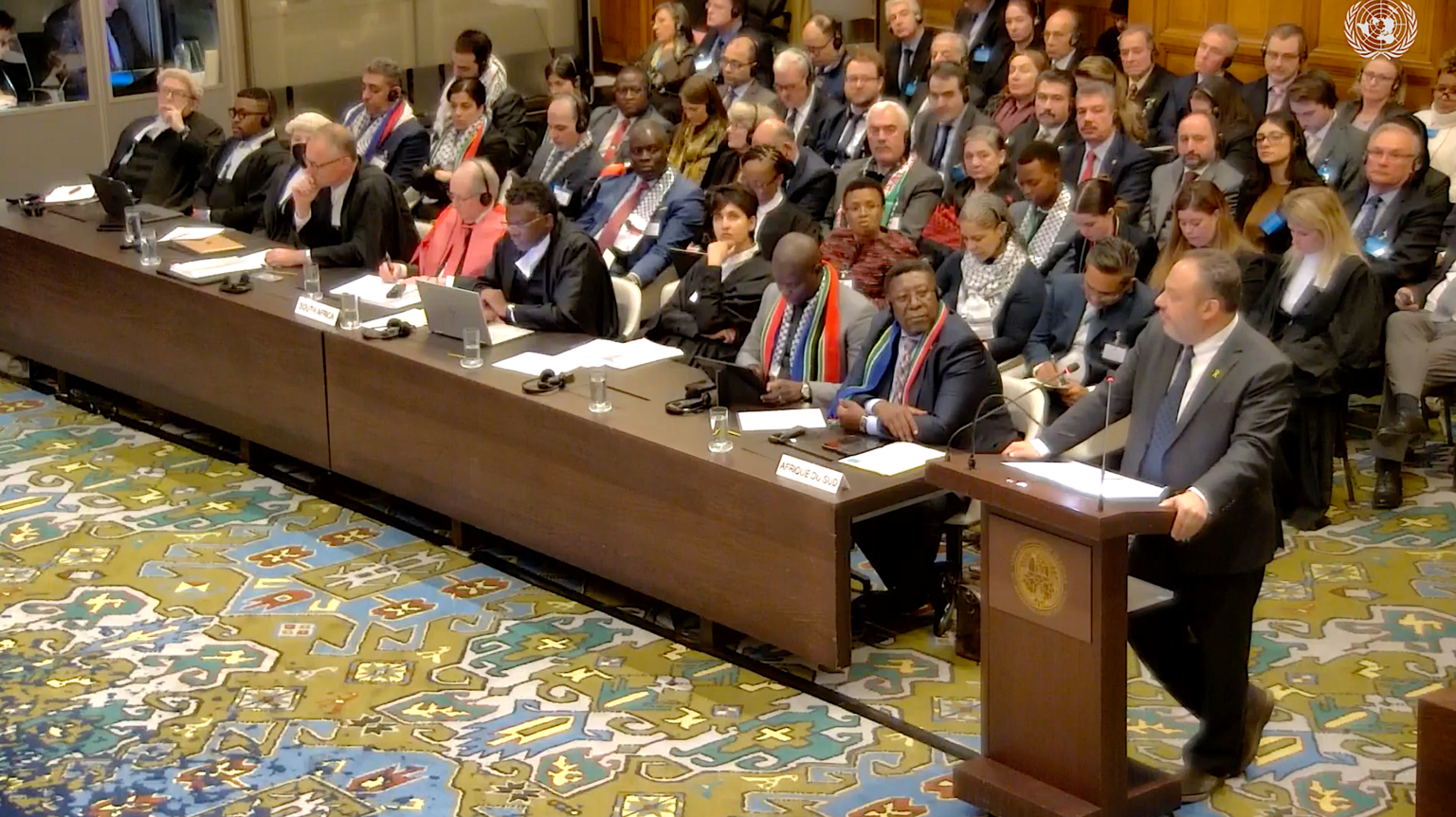
Tal Becker addressing the court for Israel on Friday. (UN TV Screenshot)
By Julia Conley
Common Dreams
Faced with a detailed documentation of statements made by top-level Israeli officials about their intent to “destroy” Gaza residents and “flatten” the enclave, legal experts observed that attorneys representing Israel on Friday at the International Court of Justice appeared to simply ignore the mounting evidence that the government is committing a genocide.
Thomas MacManus, a state crime lecturer at Queen Mary University of London, said the ICJ, which has held two hearings this week regarding South Africa’s complaint accusing Israel of genocidal violence and intent in Gaza since it began its bombardment in October, likely noticed a “massive disconnect” between Israel’s claim that it is trying to protect civilian lives with the reality on the ground.
The hearing on Friday was underway as Al Jazeera reported that nine Palestinians, including children and at least one infant, were killed in an Israeli strike on a home in Rafah — just a few of the 23,708 who have been confirmed dead in Israel’s assault.
Yet Malcolm Shaw, a British professor of international law who helped defend Israel, focused his remarks on the country’s claim that it goes to great lengths to protect civilians and asserted that the numerous statements of genocidal intent catalogued by South Africa were taken out of context.
Shaw on Netanyahu’s reference to biblical tale of Amalek: There is “no need here for a theological discussion.” South Africa took quote out of context, says Netanyahu emphasized that IDF is “most moral army in the world” & “does everything to avoid harming the uninvolved.”
— jeremy scahill (@jeremyscahill) January 12, 2024
“I think the court will find it very difficult to add these two things,” MacManus told Al Jazeera, referring to the statements compiled by South Africa and Shaw’s claim that Israel has the “most moral army in the world” and “does everything to avoid harming the uninvolved.”
“The court only needs to look at the statements in South Africa’s submission — with the ranking and authority of those making them — and ask whether they plausibly reach the level of intent required for genocide,” said MacManus. “I think the court will have to do that.”
Taj Becker, legal adviser to the Israeli Foreign Ministry, opened his remarks with a reference to Raphael Lemkin, the Polish lawyer who coined the term “genocide” in the 1940s and helped establish it as an international crime.

Raphael Lemkin, left, with Ricardo Alfaro of Panama, in Paris on Dec. 11, 1948, before the meeting at which the Genocide Convention was approved. (UN Photo/MB)
The Lemkin Institute for Genocide Prevention has for three months called on the International Criminal Court to indict Israeli Prime Minister Benjamin Netanyahu for genocidal acts, and said Friday that Becker’s words rang “hollow” considering “the overwhelming evidence” documented by South Africa.
#Israel contends that the intention to destroy a people, in whole or in part, is "totally lacking." Mr. Becker's words, however, ring hollow in light of the overwhelming evidence of genocidal rhetoric from senior Israeli officials, journalists and Israeli military and society.
— Lemkin Institute for Genocide Prevention (@LemkinInstitute) January 12, 2024
South Africa’s 84-page complaint to the ICJ includes direct quotes from officials including Israeli President Isaac Herzog, who said “an entire nation,” not just Hamas, was responsible for the group’s attack on southern Israel on Oct. 7, and Defense Minister Yoav Gallant, who said the Israel Defense Forces “will eliminate everything” in Gaza.
Yet as Step Vaessen of Al Jazeera reported, “the argument by Israel was that [genocidal intent] was clearly not government policy.”
On Democracy Now!, Center for Constitutional Rights staff attorney Diala Shamas pointed out that the Israeli defense team also focused largely on the question of whether the ICJ, the top judicial body of the United Nations, has the authority to rule on South Africa’s case and to grant the country’s request for a binding injunction that would force Israel to stop its bombardment.
Israel’s arguments, said Shamas, boiled down to, “‘You can’t be here and you can’t do anything about it, and… Everything we do is self-defense [against Hamas.]'”
The defense amounted to “a complete deflection, never at any point addressing the incredibly powerful arguments laid out [Thursday] at a hearing for three hours by the South Africa legal team,” added Shamas.
Ammar Hijazi, a Palestinian Foreign Ministry official, told reporters outside the court that Israel was not “able to provide any solid arguments on the basis of fact and law.”
“What Israel has provided today are many of the already debunked lies,” said Hijazi, noting that the legal team repeated false claims that Hamas has used hospitals in Gaza as military bases, making them legitimate targets for Israel. “We think that what the Israeli team today has [provided] is the exact thing that South Africa came to the court for — and that is, nothing at all justifies genocide.”
https://consortiumnews.com/2024/01/12/g ... arguments/
*******
US escalates aggression in Yemen, targets Sanaa airport
The US military followed up its massive Thursday bombing with additional strikes on a military base near the Sanaa airport and a radar station
News Desk
JAN 13, 2024

(Photo credit: Sky News)
The US military carried out additional strikes on Yemen this weekend, targeting a radar station and military base in the capital, Sanaa, as the Ansarallah-led government accused the US of terrorism.
The director of the Al-Mayadeen office in Yemen confirmed that air strikes or missile strikes targeted the Al-Dailami base near Sanaa International Airport, north of the capital, at dawn on Saturday, 13 January.
Regarding the Saturday strike, Reuters reported that according to a statement from US Central Command, the USS Carney used Tomahawk missiles "to degrade the Houthis' [Ansarallah] ability to attack maritime vessels, including commercial vessels."
US forces also struck a radar site in Yemen early Saturday morning. US Central Command stated the strike was also carried out by the USS Carney using missiles.
The expert in military affairs, Yemeni Brigadier General Abed al-Thawr, also commented that "American planes have been flying since yesterday evening in the airspace of Sanaa and throughout Yemen, including the AWACS surveillance plane," stressing that "Yemen has absorbed the aggression from the first moments," and that "the American raids were not effective. They are based on outdated information."
In response to the US action, Mohammed Ali al-Houthi, a member of the Ansarallah Supreme Political Council, stated, "Your strikes on Yemen are terrorism … The United States is the Devil."
"We did not attack the shores of America, nor did we move in the American islands, nor did we attack them. Your strikes on our country are terrorism," said Houthi.
This weekend's attacks follow Washington and London's late-night strikes on Yemen Thursday evening, which targeted several areas of the country, including the capital, Sanaa, and the provinces of Hodeidah, Saada, Taiz, and Hajjah, according to local news outlet Saba.
US President Joe Biden announced that the strikes were a "direct response to unprecedented Houthi attacks against international maritime vessels in the Red Sea."
"A large number" of Yemeni drones and missiles targeted a US ship on Wednesday, which in turn came in response to Washington's sinking of three Yemeni naval boats and the killing of ten Yemeni naval officers on 31 December.
The conflict began after Ansarallah-led Yemeni forces began targeting Israeli-linked commercial ships in the Red Sea in response to Israel's horrific bombing campaign against Gaza, which has killed over 22,000 Palestinians, the majority women and children, and which many consider genocide.
While many regional governments, including Turkiye and Saudi Arabia, have verbally condemned Israel's actions, Yemen's Ansarallah and Lebanon's Hezbollah are the only groups or governments that have sought to intervene to stop Israel's campaign in Gaza militarily.
https://new.thecradle.co/articles/us-es ... aa-airport
Europe's big powers back out of US-led bombing campaign of Yemen
Rome, Paris, and Madrid have refused to participate in Washington and London's latest war in West Asia
News Desk
JAN 13, 2024

Spanish Minister of Defense Margarita Robles (Photo credit: Jorge Zapata/Efe)
Europe is divided over the US-UK bombing of Yemen, one of the world's poorest countries, as Italy, Spain, and France have refused to take part in the operation.
Washington and London carried out late-night strikes on Yemen Thursday evening, which targeted several areas of the country, including the capital, Sanaa.
The US and UK are seeking to target Yemen's Ansarallah-led forces for their efforts to target Israeli-linked ships in the Red Sea in response to Israel's brutal bombing campaign in Gaza, which many view as genocide.
The US-UK strikes were supported by Germany, Denmark, The Netherlands, Australia, New Zealand, Canada, South Korea, and Bahrain, who all signed a joint statement backing the bombing.
However, Europe's major powers, France, Italy, and Spain, refused to take part in the strikes and declined to sign the statement in support of them.
The Italian government, led by Prime Minister Giorgia Meloni, said it was not asked to participate in the US-UK attacks on Yemen. It stated further that even if a request had been made, it could not have participated without a debate and vote in parliament to authorize military action.
The Italian deputy prime minister said Italy could not have participated at such short notice "because the constitution does not allow us to commit acts of war without a debate in parliament."
However, a government source told Reuters that Rome had been asked to participate but refused because it preferred a "calming policy."
The French government, led by Emmanuel Macron, also ruled out joint action with the US and UK, unlike in Libya in 2011 and against ISIS in Syria in 2015.
French Rear Admiral Emmanuel Slaars said on Thursday that although the French Navy is active in protecting French ships in the Red Sea, Paris's current mandate did not include striking Ansarallah directly.
The Telegraph reported that an anonymous French official said Paris feared that by joining the US-led assault on Yemen's Ansarallah-led forces, it would lose any leverage it had in mediating between Hezbollah and Israel.
France says it is focusing its diplomatic efforts on avoiding an escalation in Lebanon, where Hezbollah has been fighting Israel on the border since 7 October, also in support of Gaza.
In Spain, Minister of Defense Margarita Robles reiterated Friday that Spain will not participate in any military operation against Yemen. She said this included a rejection of participating in a European Union operation in the Red Sea, which is expected to be announced in the coming days.
"Spain is a country firmly committed to peace in the world, precisely for that reason we have 17 missions and more than 3,000 people in many places," Robles acknowledged. "From the beginning we have said that in the Red Sea we understand that Spain is not going to participate at this time."
https://new.thecradle.co/articles/europ ... n-of-yemen

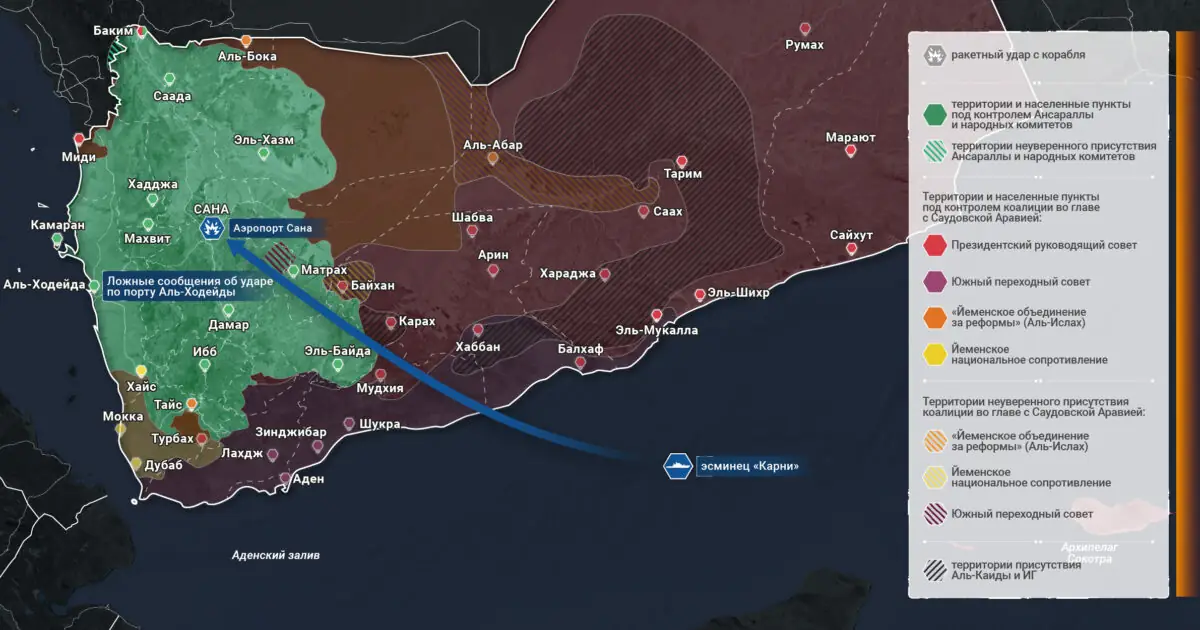
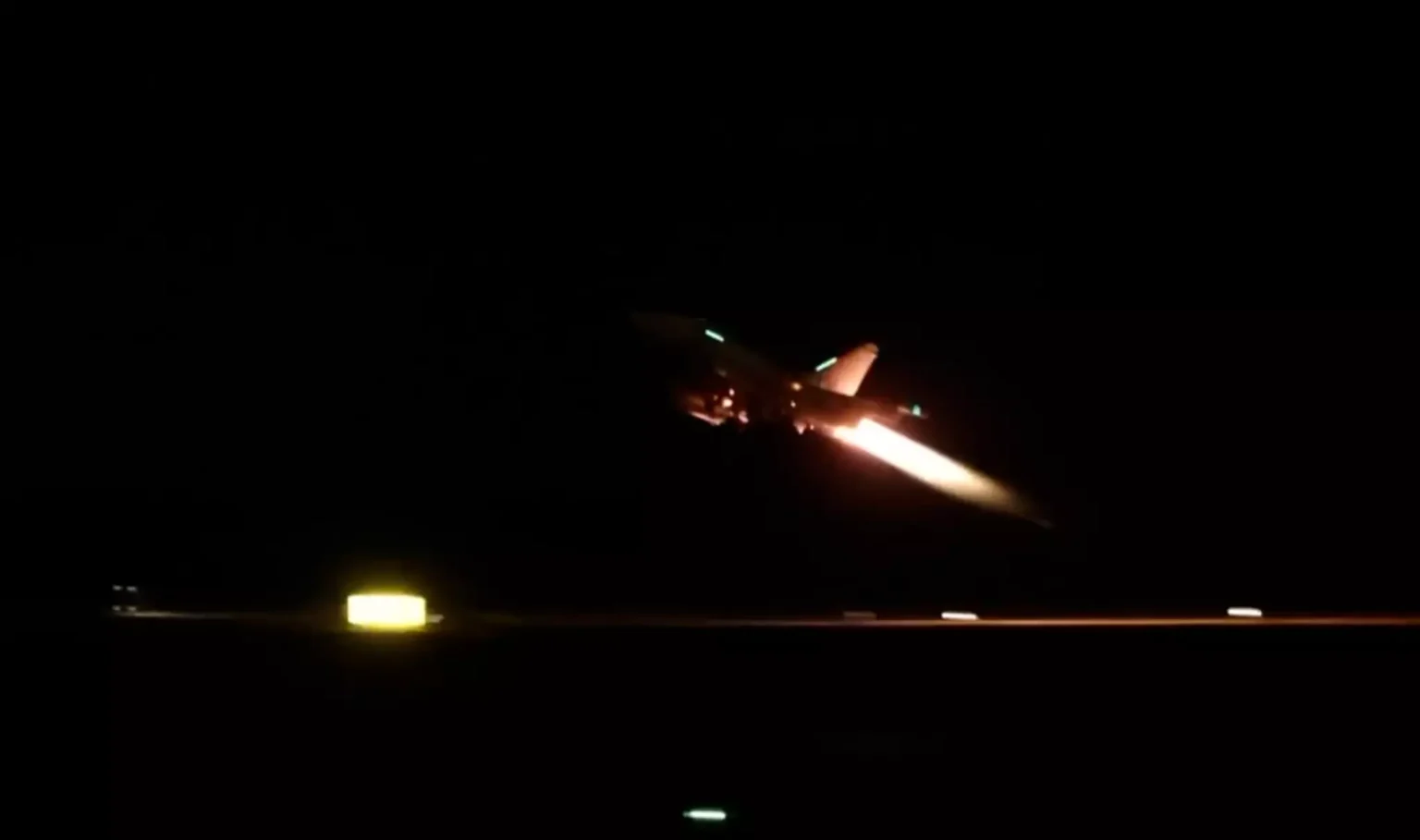
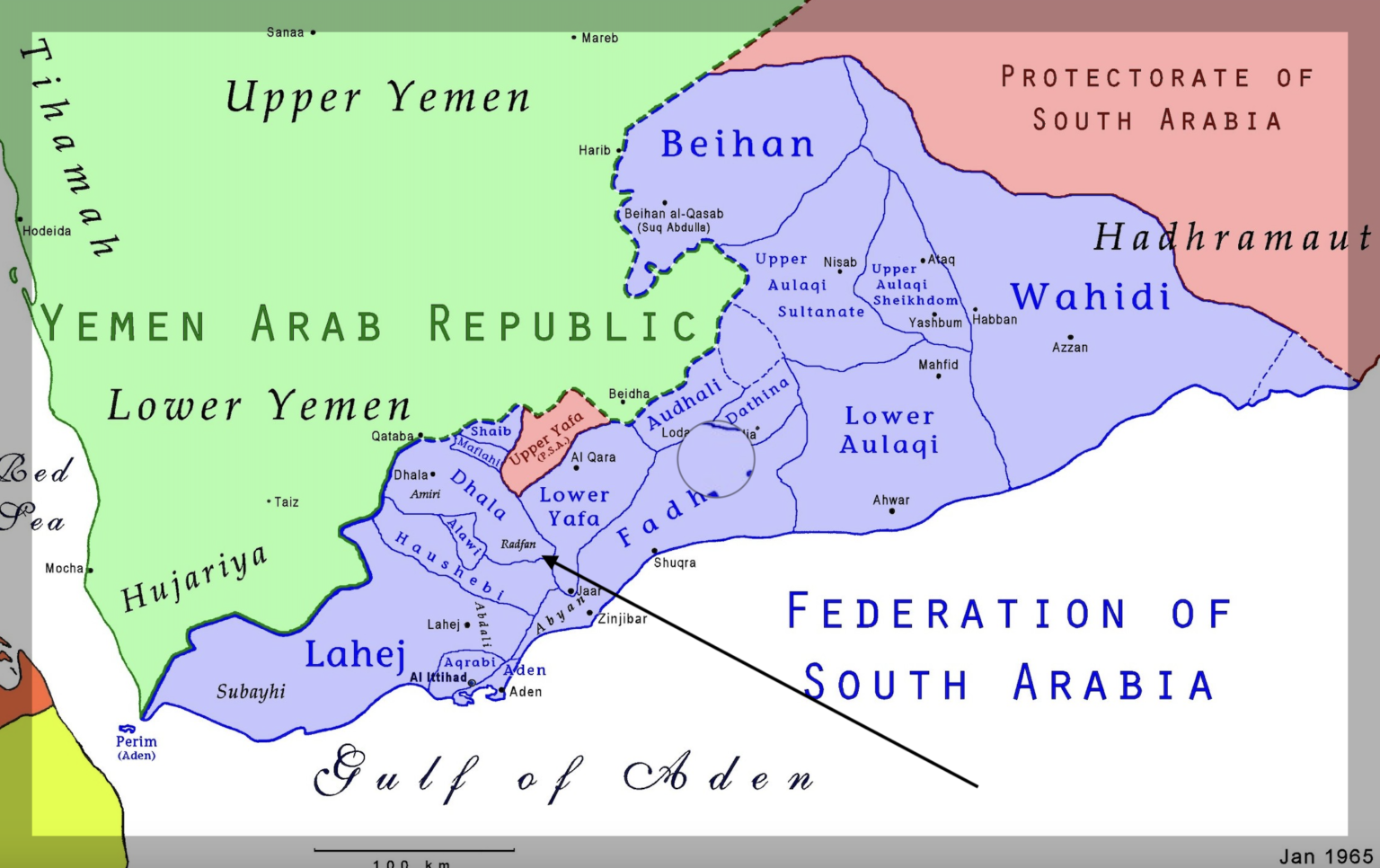
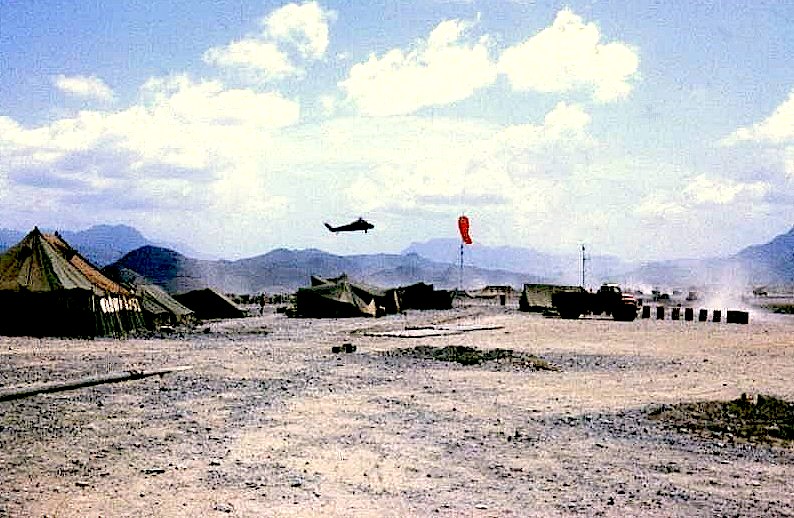


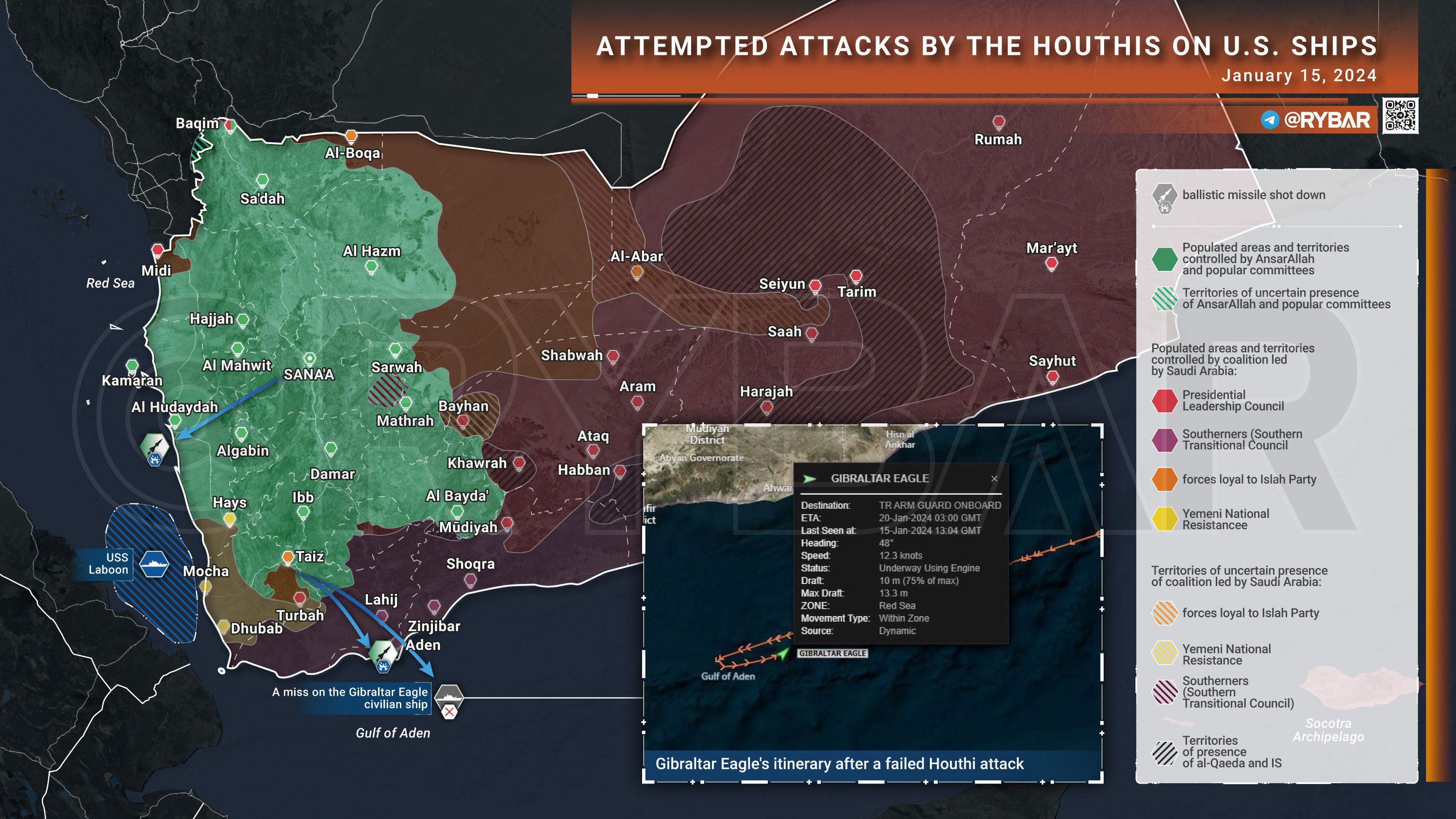




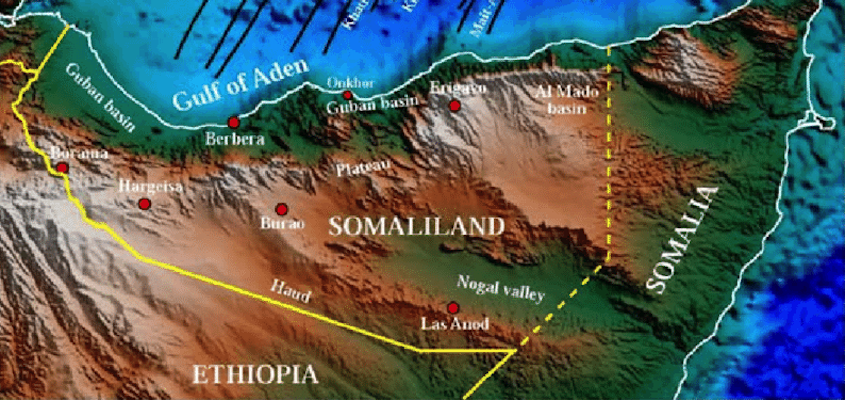


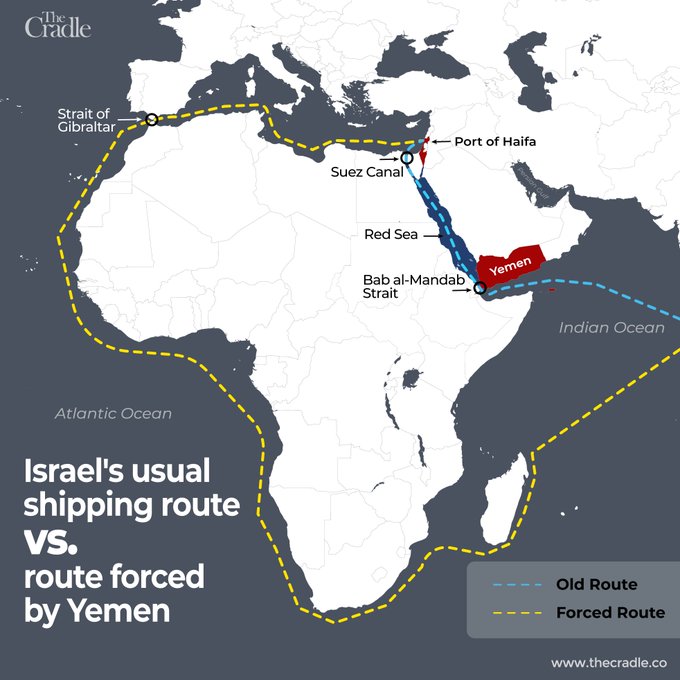
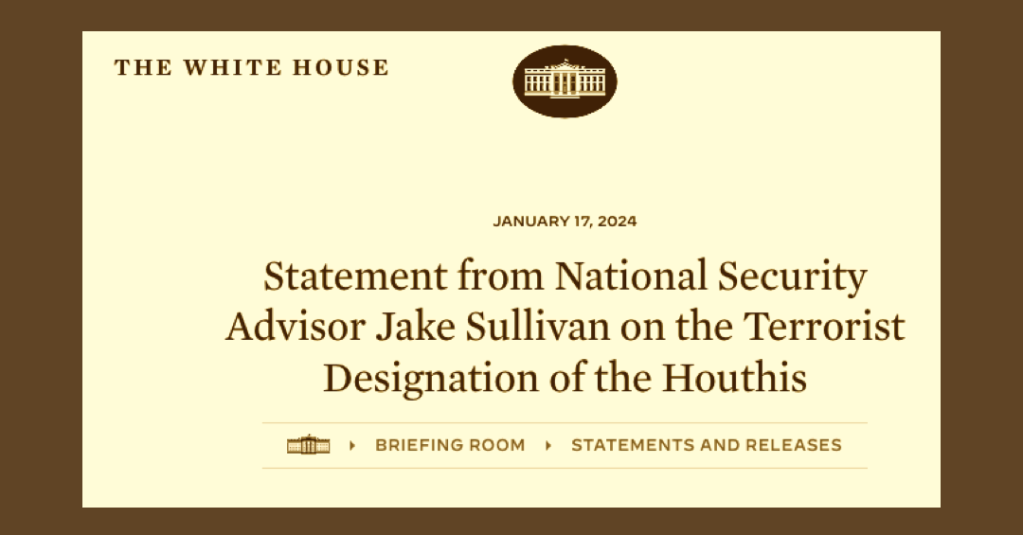
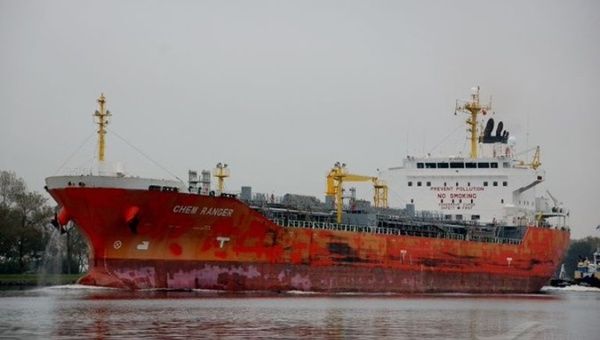









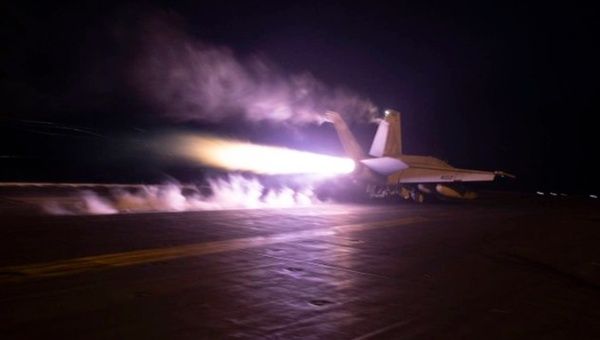
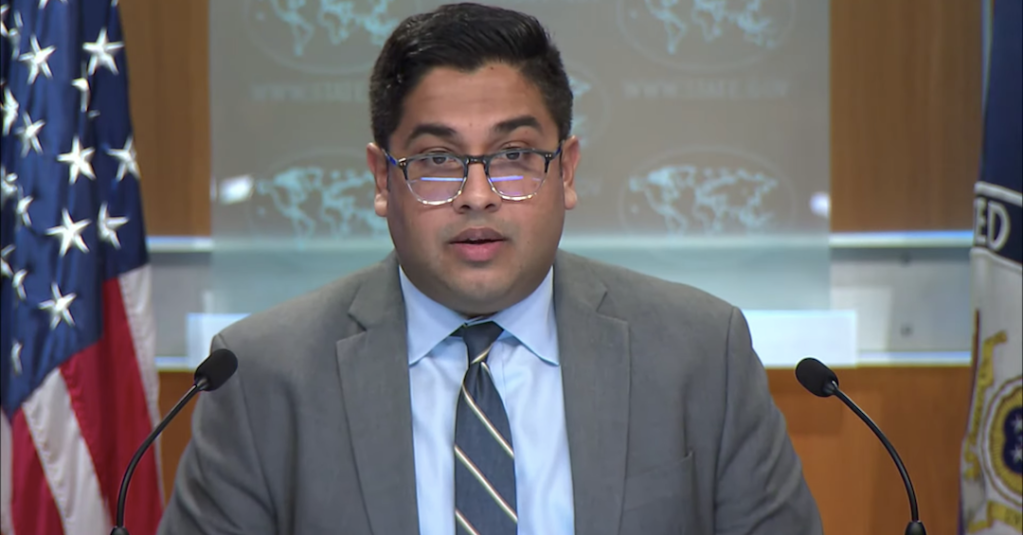
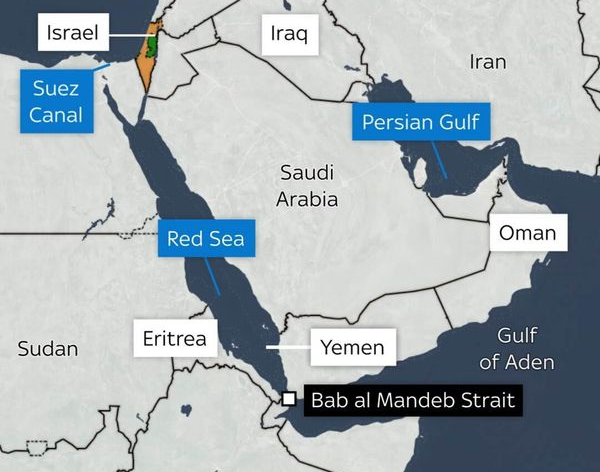
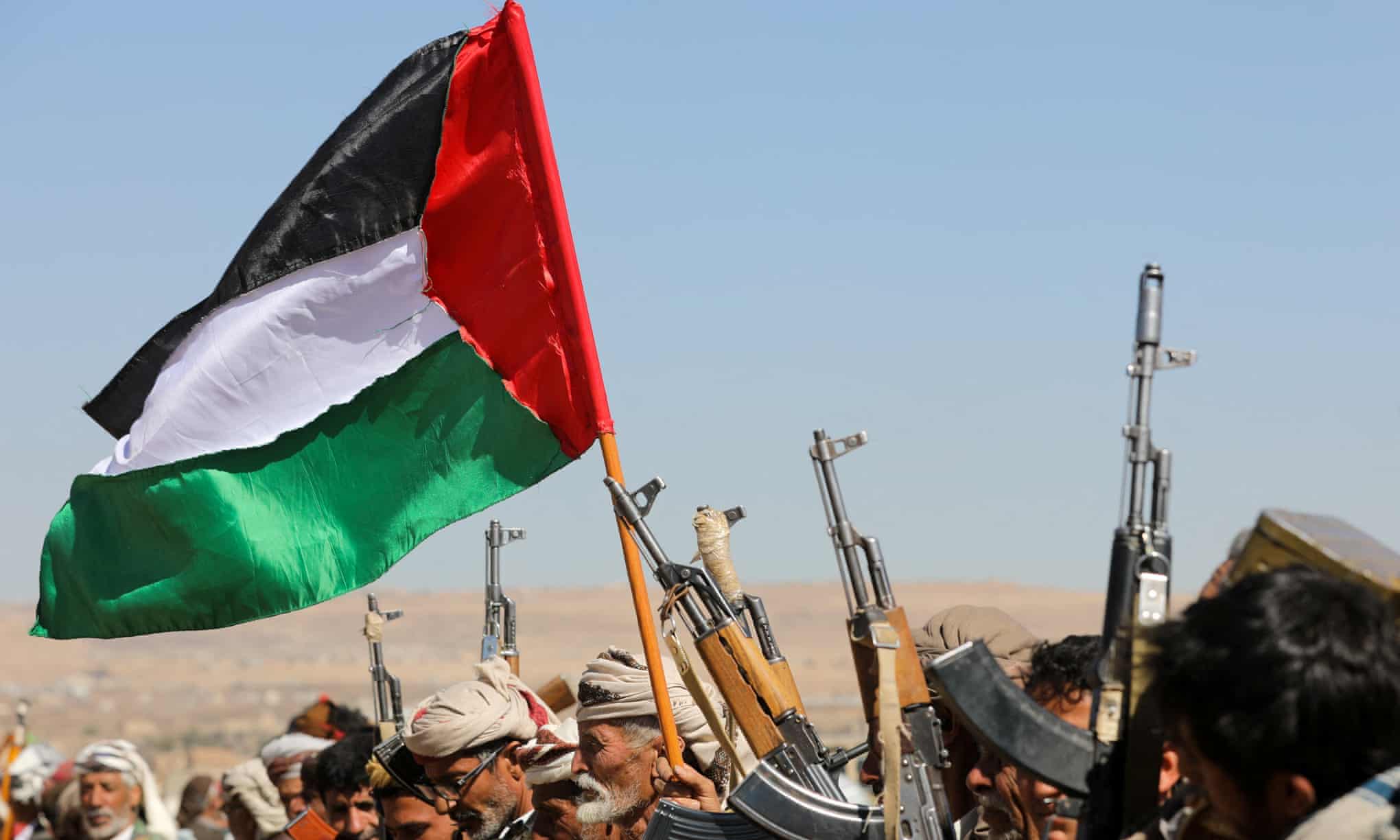
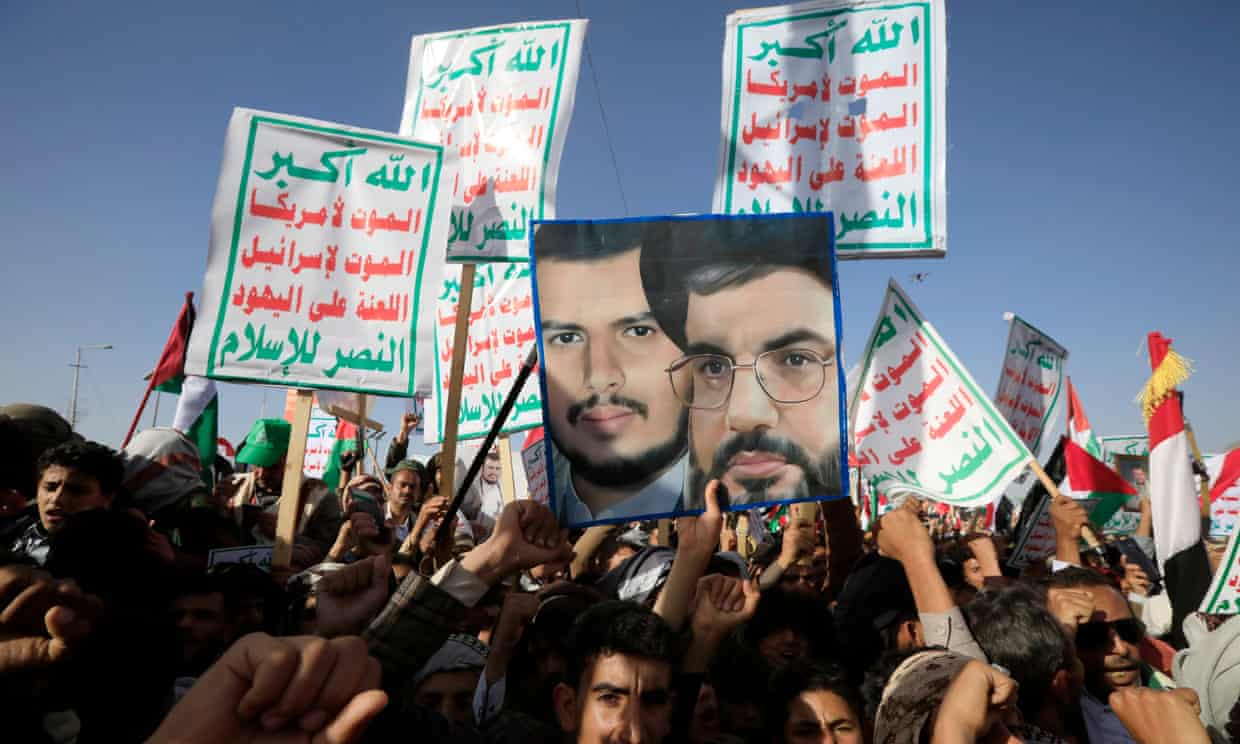



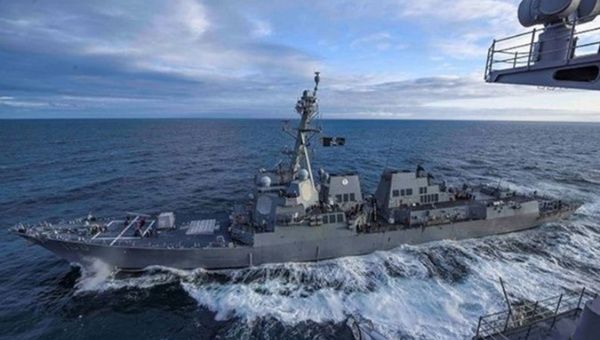
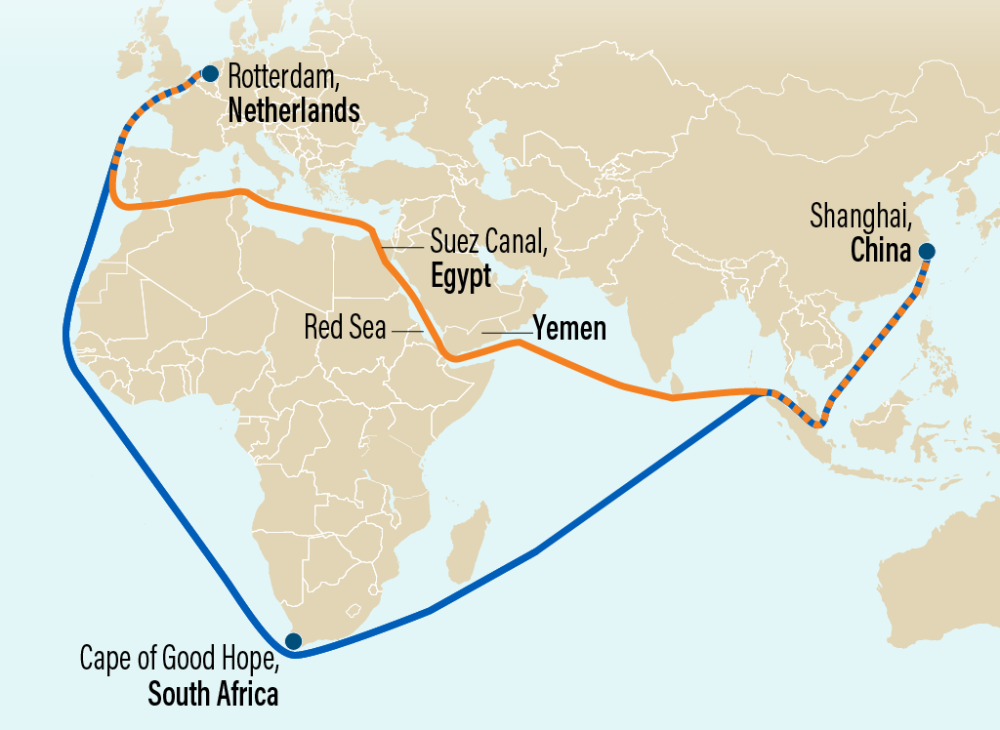

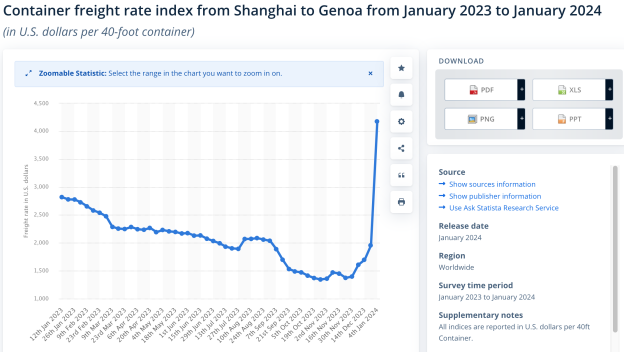
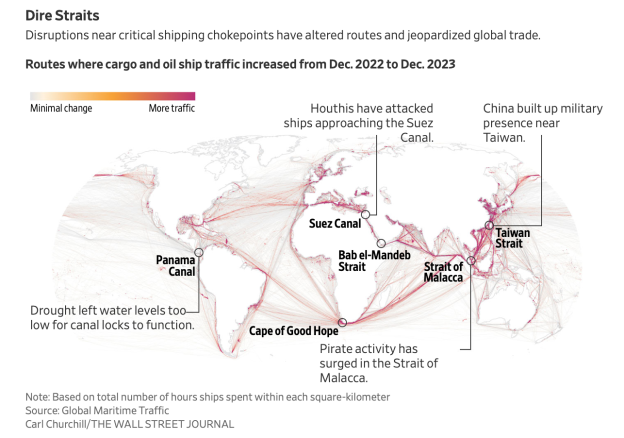
 SIMPLICIUS THE THINKER
SIMPLICIUS THE THINKER